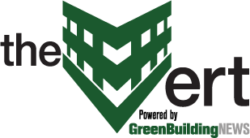NC Bill to Ban Public Projects from Achieving LEED
RALEIGH, N.C. — The North Carolina House of Representatives is taking a stand against the restrictions in the U.S. Green Building Council’s LEED program. On May 13, the House approved 70-43 a third and final reading of House Bill 628, which would basically ban public projects from using LEED.
The bill, titled Project/Promote NC Lumber, says that public projects can use “a nationally recognized high-performance environmental building rating system, provided that any such rating system does not use a material or product-based credit system disadvantaging materials or products manufactured or produced in this state.”
This means that state buildings would be allowed to achieve green certification from organizations that recognize multiple forestry standards, apart from the one accepted by LEED. The bill would also restrict state buildings from getting green certification from an evaluation system that was developed and approved by the American National Standards Institute. Both restrictions would disqualify LEED.
Federal Way, Wash.-based Weyerhaeuser Corp., the world’s largest private owner of timberlands, and the N.C. Forestry Association back the legislation. North Carolina’s timber industry is unable to bid on several state construction projects because tree farms in the state don’t meet the LEED sustainable forestry standard, forcing building projects to seek lumber in other states or even other countries.
The News and Observer reported that more than 98 percent of North Carolina’s timberland (about 1.4 million acres) meets non-LEED forestry standards, while only 0.7 percent of the state’s timberland (about 10,455 acres) follows the LEED-approved Forest Stewardship Council standards. The LEED forestry standard is stricter than others in regards to the use of clear cutting, herbicides and pesticides.
The bill applies to state government construction and renovation, not to projects for private businesses and residential developers, which gain the majority of LEED certifications. North Carolina currently has 27 LEED-certified state buildings, according to the USGBC, while 281 schools, 1,288 homes and 1,375 commercial buildings also have the LEED seal.
The U.S. Green Building Council, as well as Charlotte-based Nucor Corp. the nation’s largest steel producer and North America’s largest recycler, oppose the legislation.
According to the Charlotte Business Journal, Rep. Ruth Samuelson argued against the bill, expressing concern for how it would affect Nucor Corp. and other companies in the green building industry.
The bill will now move to be voted on by the state senate.
